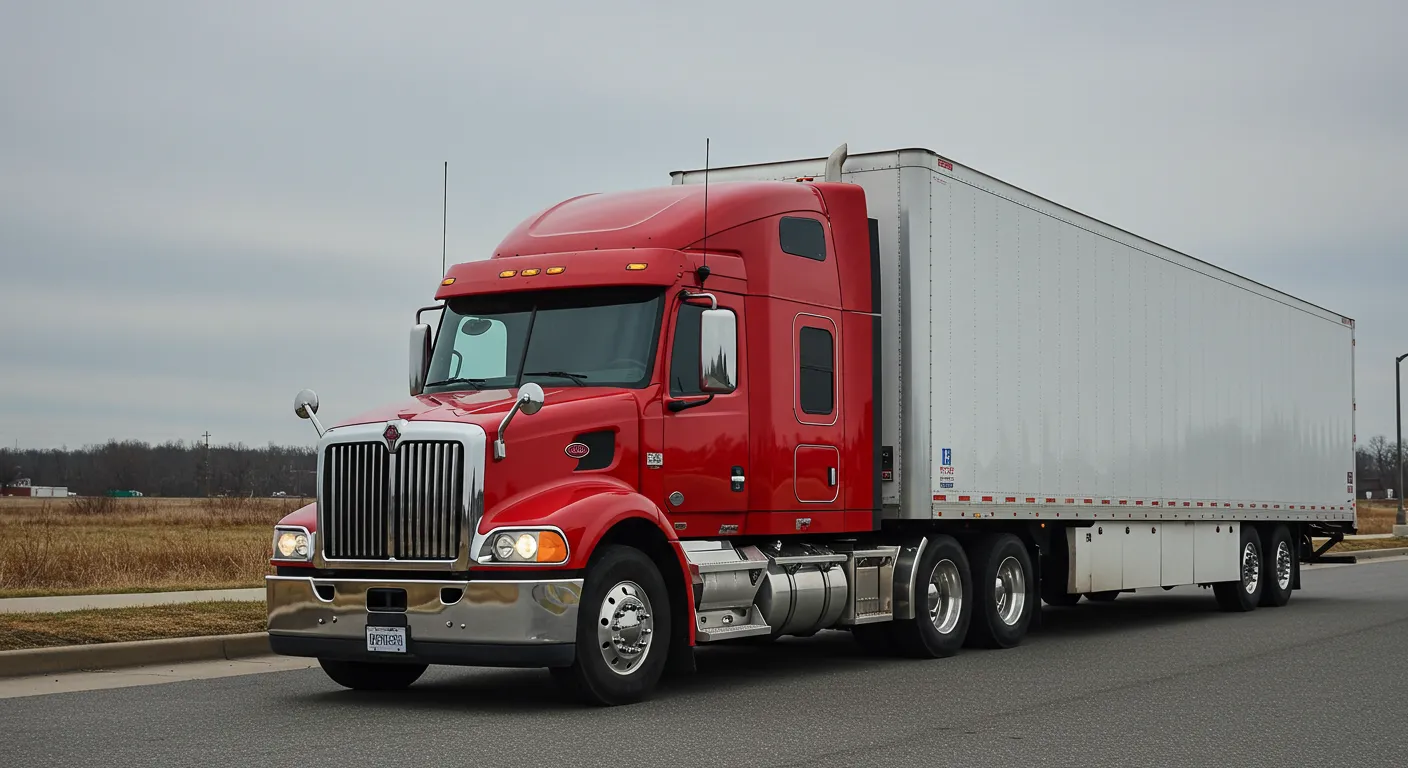Table of Contents
In the fast-paced world of logistics and transportation, the term “What Is a Linehaul Driver” often surfaces as a pivotal role in keeping supply chains moving. These professionals are the backbone of long-distance freight transport, ensuring goods travel efficiently between major hubs.
But what exactly does a linehaul driver do, and why is their role so essential in today’s economy? This article explores the responsibilities, challenges, and rewards of being a linehaul driver, shedding light on a career that powers global commerce.
Defining the Role of a Linehaul Driver
A linehaul driver is a professional truck driver responsible for transporting freight over long distances between distribution centers, warehouses, or terminals.
Unlike local delivery drivers, who make frequent stops to deliver goods directly to customers, linehaul drivers focus on moving large quantities of cargo along predetermined routes, often covering hundreds of miles in a single trip.
These drivers typically operate tractor-trailers or semi-trucks, hauling goods that are then redistributed for last-mile delivery.
The term Linehaul Office Solutions refers to the movement of freight along a “line” or route between major hubs, such as from a manufacturer’s warehouse to a regional distribution center.
Linehaul drivers rarely handle the loading or unloading of cargo, as their primary focus is on driving safely and efficiently to meet tight schedules. This role is critical in industries like retail, e-commerce, and manufacturing, where timely delivery of goods is paramount.
Also Read: Geilo vs Hafjell: Choosing the Best Location for Your Cabin
Key Responsibilities of a Linehaul Driver
The day-to-day duties of a linehaul driver go beyond simply driving a truck. Their responsibilities include:
- Safe and Timely Transport: Linehaul drivers must adhere to strict delivery schedules while complying with federal regulations, such as hours-of-service (HOS) rules enforced by the Federal Motor Carrier Safety Administration (FMCSA). These regulations limit driving hours to ensure safety, requiring drivers to plan their routes carefully.
- Vehicle Maintenance Checks: Before and after each trip, linehaul drivers inspect their trucks to ensure they are in good working condition. This includes checking tires, brakes, lights, and other critical components to prevent breakdowns or accidents.
- Documentation and Communication: Drivers maintain detailed logs of their trips, including mileage, fuel consumption, and delivery times. They also communicate with dispatchers and logistics coordinators to report delays, road conditions, or other issues.
- Navigating Long-Distance Routes: Linehaul drivers often travel across state lines or even coast-to-coast, requiring them to be adept at using GPS systems, reading maps, and adapting to varying road and weather conditions.
For example, a linehaul driver working for a major retailer like Amazon might transport a load of electronics from a distribution center in Chicago to a hub in Dallas, covering over 900 miles in a single trip. Their focus is on getting the cargo to its destination safely and on time, leaving the unloading to warehouse staff.
The Skills and Qualifications Needed
Becoming a linehaul driver requires a combination of technical skills, physical stamina, and mental resilience. Key qualifications include:
- Commercial Driver’s License (CDL): A Class A CDL is typically required to operate the large trucks used in linehaul operations. Obtaining a CDL involves passing written, skills, and road tests, as well as meeting medical and background check requirements.
- Driving Experience: Many employers prefer candidates with at least one to two years of driving experience, as linehaul routes often involve navigating busy highways and challenging conditions.
- Time Management: Linehaul drivers must balance tight delivery schedules with mandatory rest periods, making time management a critical skill.
- Physical and Mental Endurance: Long hours on the road, often at night or in adverse weather, demand physical fitness and mental alertness. Drivers must stay focused to avoid accidents and manage the stress of being away from home for extended periods.
Training programs and trucking schools can help aspiring linehaul drivers gain the necessary skills, but real-world experience is often the best teacher. Companies like FedEx, UPS, and J.B. Hunt offer linehaul positions and sometimes provide on-the-job training for new hires.
Challenges Faced by Linehaul Drivers
While the role of a linehaul driver can be rewarding, it comes with its share of challenges:
- Long Hours and Time Away from Home: Linehaul drivers often spend days or even weeks on the road, which can strain personal relationships and lead to feelings of isolation. For instance, a driver on a cross-country route might be away from family for a week at a time.
- Health Concerns: Sitting for long periods, irregular sleep schedules, and limited access to healthy food can take a toll on a driver’s health. Many linehaul drivers adopt strategies like packing nutritious meals or exercising during rest breaks to stay fit.
- Regulatory Compliance: Strict regulations, such as HOS rules and weight limits, add complexity to the job. Violating these rules can result in fines, license suspensions, or job loss.
- Road Hazards: From inclement weather to aggressive drivers, linehaul drivers face numerous risks on the road. Defensive driving and situational awareness are essential to staying safe.
Despite these challenges, many linehaul drivers find the job fulfilling due to the independence it offers and the opportunity to see different parts of the country.
Rewards and Opportunities in Linehaul Driving
The role of a linehaul driver comes with several benefits that attract individuals to the profession:
- Competitive Pay: Linehaul drivers often earn higher salaries than local drivers due to the long distances they cover. According to the U.S. Bureau of Labor Statistics, the median annual wage for heavy and tractor-trailer truck drivers was $54,320 in 2024, with experienced linehaul drivers earning upwards of $70,000 or more.
- Job Stability: The demand for linehaul drivers remains strong, driven by the growth of e-commerce and global trade. Companies like Walmart and Target rely on these drivers to keep their supply chains running smoothly.
- Career Growth: Linehaul driving can serve as a stepping stone to other roles in logistics, such as fleet management, dispatching, or owner-operator positions. Some drivers choose to lease or purchase their own trucks, becoming independent contractors with the potential for higher earnings.
- Sense of Freedom: Many linehaul drivers enjoy the autonomy of the open road, where they can set their own pace (within regulatory limits) and explore new places.
For example, a linehaul driver for a company like Schneider National might start as a company driver, gain experience, and later transition to an owner-operator role, running their own business and choosing their routes.
The Future of Linehaul Driving
As technology advances, the role of the linehaul driver is evolving. Autonomous trucks and advanced driver-assistance systems (ADAS) are being tested to improve safety and efficiency, but human drivers remain essential for the foreseeable future. The rise of e-commerce continues to drive demand for linehaul drivers, as companies strive to meet consumer expectations for fast delivery.
Sustainability is also shaping the industry, with companies investing in electric and hybrid trucks to reduce emissions. Linehaul drivers may need to adapt to new technologies and regulations as the industry moves toward greener practices.
Conclusion
A Linehaul Office driver plays a vital role in the logistics industry, ensuring goods move seamlessly between major hubs to keep the economy running. This career offers competitive pay, job stability, and a sense of independence, but it also comes with challenges like long hours and road hazards.
For those with a passion for driving and a knack for time management, becoming a linehaul driver can be a rewarding path. As technology and consumer demands evolve, these professionals will continue to be at the heart of global supply chains, proving that the open road is still a critical artery of commerce.



